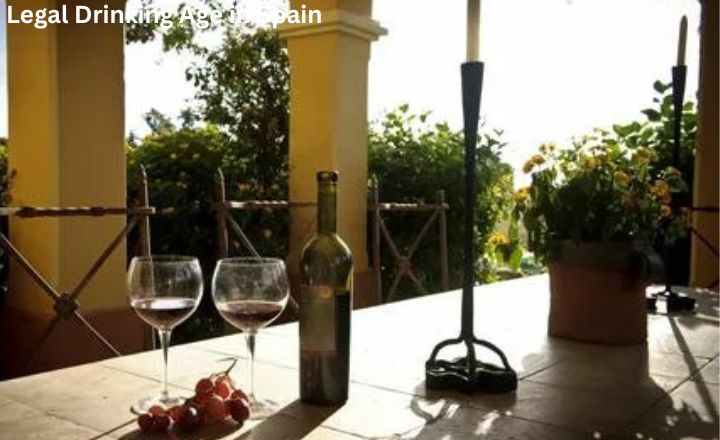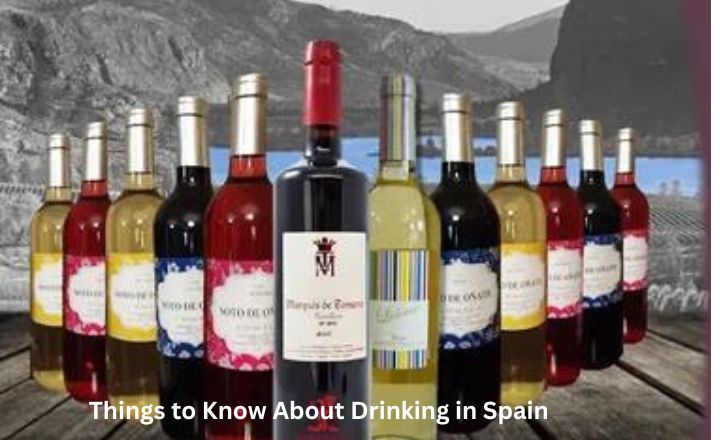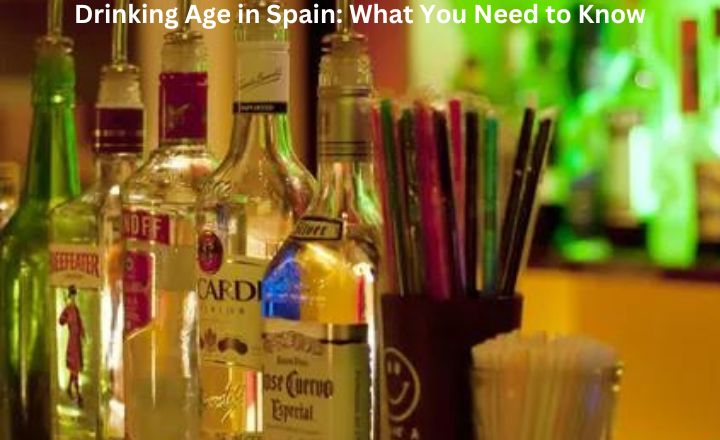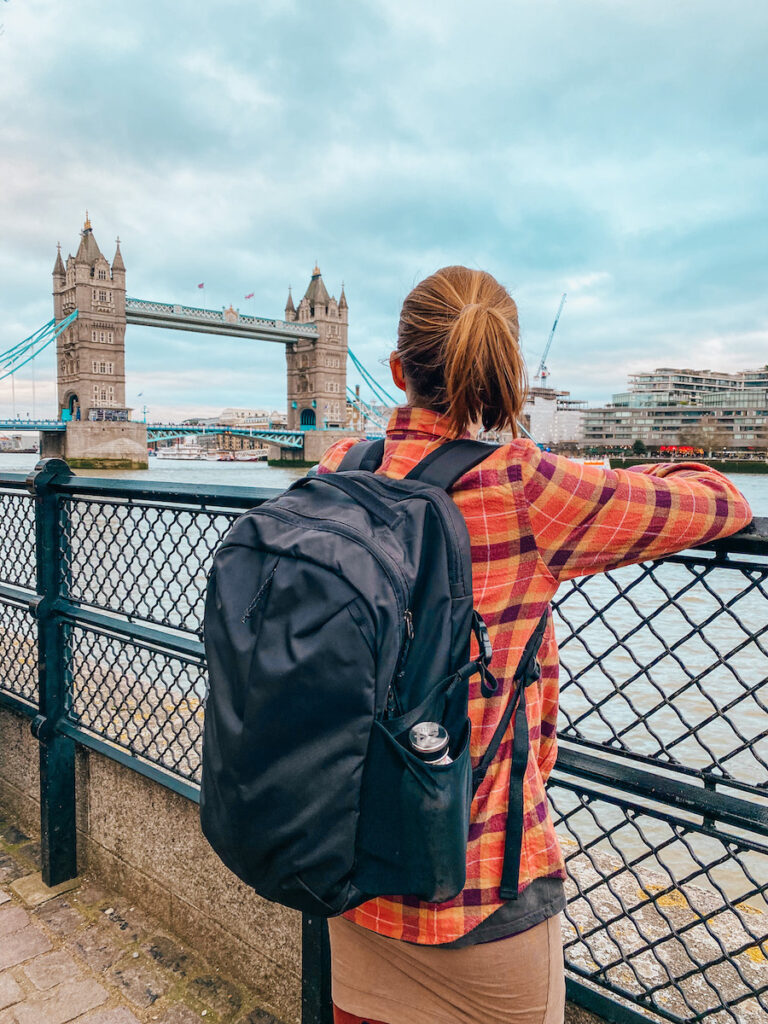Drinking Age in Spain: What You Need to Know
In the heart of vibrant Spain, where tapas flow freely and the sun-drenched streets beckon with a sense of adventure, lies a question that many visitors may ponder: Drinking Age in Spain: What You Need to Know? From bustling Barcelona to charming Seville, the allure of Spanish culture often includes indulging in local libations. But how old do you have to be to partake in this age-old tradition truly?
The answer may surprise you, as navigating the drinking age in Spain reveals a fascinating blend of history, cultural norms, and legal regulations that add an intriguing layer to your Spanish experience. So grab a seat at a bustling plaza or cozy corner bar because we’re about to uncover everything you need to know about the drinking age in Spain.
Legal Drinking Age in Spain

In Spain, the legal drinking age is 18. However, this law is not strictly enforced in many parts of the country. This leniency towards underage drinking may be surprising to some visitors who come from countries with strict age restrictions.
The relaxed attitude towards the drinking age in Spain can be attributed to the cultural significance of socializing over drinks. Spaniards often start introducing alcohol at a young age within family settings, allowing teenagers to develop a healthy relationship with alcohol under supervision. This approach contrasts sharply with countries where there is a strong emphasis on enforcing strict regulations around alcohol consumption among minors.
Comparisons to Other Countries
Drinking Age in Europe
For those wondering about the legal drinking age in Europe, it’s worth noting that while many countries have set the minimum age at 18, Spain allows individuals as young as 16 to consume beer and wine under the supervision of an adult.
There are significant differences in the drinking age in Europe compared to other countries around the world. In many European countries, such as Spain, the legal drinking age is lower than in places like the United States. This variance raises questions about cultural attitudes toward alcohol consumption and societal perceptions of maturity and responsibility.
Countries like Iceland and Sweden have set the limit at 20. This contrast highlights how different countries prioritize individual freedoms and trust in young adults to make responsible choices regarding alcohol consumption. By examining these discrepancies in drinking ages across different nations, we can gain a deeper understanding of how societal norms shape behaviors and attitudes toward alcohol consumption.
Drinking Age in the USA
The drinking age in the United States stands at 21, which is higher compared to many countries around the world. In most European countries, the legal drinking age ranges from 16 to 18 years old. This stark difference raises questions about cultural attitudes towards alcohol consumption and maturity levels among young adults.
In Spain, known for its vibrant nightlife culture, the legal drinking age is 18. This allows young people to experience alcohol in a more regulated environment compared to the U.S., where underage drinking remains a prevalent issue despite strict laws. The European approach emphasizes education and responsible consumption from an early age, potentially leading to more informed decisions when it comes to alcohol use.
While debates continue on whether lowering the drinking age in the U.S. would reduce unsafe behavior or if stricter regulations are necessary, it’s worth examining how different societies handle this complex issue. Understanding how cultural norms and government policies influence alcohol consumption can shed light on effective strategies for promoting healthy attitudes towards drinking among young adults both in Europe and America.
Drinking in Spanish Culture

In Spanish culture, drinking is an integral part of social gatherings and celebrations. Unlike in some other European countries where the legal drinking age is 18 or 21, Spain allows young adults to consume alcohol in public from the age of 18. This early introduction to alcohol often leads to a more relaxed attitude towards drinking among Spaniards. How many days in Lisbon do you need to experience all that this captivating city has to offer? I have in lisbon presently. i have very good experience in lisbon, I have write a blog that how many days you visit in Lisbon.
Compared to other countries, the Spanish approach to alcohol consumption is less about excessive partying and more about enjoying quality time with friends and family over a glass of wine or beer. Alcohol is seen as a way to enhance social interactions rather than as the main focus of the gathering. Understanding this cultural context can help visitors appreciate the rich tapestry of Spanish traditions surrounding drinking.
Traditional Drinks in Spain
- Sangria: Sangria, the iconic Spanish drink, has gained popularity worldwide for its refreshing taste and vibrant colors. While many countries have their versions of fruit-infused alcoholic beverages, Sangria stands out with its unique blend of red wine, citrus fruits, and a touch of sweetness from sugar or orange juice. Its versatility allows for endless variations, making it a versatile option for different occasions.
- Spanish Wines: When it comes to Spanish wines, the Rioja and Ribera del Duero regions stand out for their exceptional quality and distinct characteristics. The Rioja region produces elegant red wines with notes of oak and spice, while Ribera del Duero’s offerings are known for their robust flavours and bold tannins. Spain’s traditional drinks offer a sensory journey like no other. From the rich, bold flavours of Spanish wines to the vibrant hues of sangria, each sip tells a story of Spain’s gastronomic heritage.
- Tinto de Verano: When it comes to traditional drinks in Spain, the Tinto de Verano stands out as a unique and refreshing option. This blend of red wine and sweetened carbonated water creates a perfect balance of flavours, making it a popular choice among locals and visitors alike. The addition of a citrus slice adds a zesty twist to this already invigorating cocktail.
- Sherry: When compared to other countries, the tradition of enjoying sherry in Spain stands out for its cultural significance and variety. While some may compare sherry to other fortified wines like port or Madeira, the unique terroir of the Jerez region gives it a distinct flavour profile that cannot be replicated elsewhere.
To fully appreciate the experience of drinking sherry in Spain, understanding the country’s drinking culture is vital. With a lower legal drinking age compared to many European countries, Spain fosters a more relaxed relationship with alcohol consumption. - Beer: When it comes to beer, Spain boasts a rich array of local brews that can easily rival those from other European countries. Spanish cerveza has a unique flavor profile, often boasting a refreshing crispness with subtle hints of citrus or herbs. Compared to its neighboring countries, Spain offers a diverse range of beers that cater to different palates and preferences.
- Agua de Valencia: Agua de Valencia, a popular traditional drink in Spain, holds a unique status among other famous cocktails worldwide. Its blend of cava, orange juice, vodka, and gin creates a potent yet refreshing concoction that captures the essence of Valencia in every sip. While some may compare it to the well-known mimosa or sangria, Agua de Valencia stands out for its bold flavour profile and intoxicating mix of spirits.
Things to Know About Drinking in Spain

When exploring Spain’s vibrant drinking scene, it’s important to adhere to the country’s laws for a pleasant and trouble-free time. Below are some legal pointers to consider, including comparisons with other nations and essential information on the Drinking Age in Spain: What You Need to Know?
- Avoid Public Drinking: When in Spain, it’s important to be aware of the local laws and customs regarding drinking. One key thing to note is that public drinking, known as botellón, is strictly prohibited. This means no open containers or casual sips while strolling down the street. To fully embrace the Spanish drinking culture, opt for enjoying your drinks within designated establishments or cozy up at home for a more relaxed experience.
- Time Restrictions on Alcohol Sales: It’s essential to be aware of the time restrictions on alcohol sales in Spain when planning a night out. In many regions, after 10:00 PM, supermarkets and most shops stop selling alcohol, signaling the end of casual drink runs.
- Bring ID: While the legal drinking age in Spain is 18, it is important to note that establishments are very strict about checking identification. Even if you are well above 18, carrying your ID is essential to avoid any potential issues when purchasing or consuming alcohol.
- Adhering to the Legal Drinking Age: When it comes to drinking in Spain, the legal age is 18, making it a popular destination for young travellers looking to experience the vibrant nightlife. It’s important to always have your ID on hand when heading out for drinks as establishments are diligent about checking age requirements. Unlike some countries where the legal drinking age might be higher, Spain allows young adults to fully immerse themselves in the social culture of enjoying a glass of wine or cerveza.
- No Drunk Driving: When it comes to drinking in Spain, one crucial thing to keep in mind is the country’s strict stance on drunk driving. Authorities have a zero-tolerance policy towards this offense, making it essential for visitors and locals alike to opt for public transportation or services like taxis or Uber if they’ve had a drink. This approach not only ensures safety on the roads but also promotes responsible consumption of alcohol.
- Respect Local Laws: When it comes to drinking in Spain, it’s essential to respect Spanish laws as they can vary between different regions. While some areas may have lenient regulations regarding alcohol consumption in public spaces, others may enforce strict rules. To avoid any misunderstandings, it’s always a good idea to ask a local for guidance if you’re unsure about what is permitted.
Legal Consequences for Breaking Spanish Drinking Laws
Understanding the legal ramifications of violating alcohol regulations in Spain is crucial. Below are a few typical repercussions that may arise:
- Drinking as a minor: The consequences of drinking alcohol as a minor can have far-reaching effects beyond just a simple fine. The minimum fine of $300 may seem like a manageable amount, but the impact it can have on a young person’s future is immeasurable. Not only does it set a dangerous precedent for risky behavior, but it also raises concerns about the overall well-being and safety of minors who engage in underage drinking.
- Drinking in public: Spain’s strict regulations against public drinking may seem harsh to some, but they reflect the country’s commitment to maintaining social order and respect for public spaces. The hefty fine of around 600 for those caught violating the ban serves as a deterrent, encouraging individuals to enjoy their beverages in designated areas such as bars, restaurants, or private residences.
- Drinking and driving: Imagine the icy grip of fear wrapping around you as those flashing blue lights appear in your rearview mirror. The realization dawns on you that one moment of carelessness, one drink too many, could cost you at least $500 in fines and potentially land you behind bars. The legal restriction of 0.5 grams per liter of blood serves as a clear boundary between the choice to drink and drive or to find an alternative route home.
- Selling alcohol to minors: Selling alcohol to minors is not only unethical but also poses serious legal consequences. With fines ranging from the hefty sum of $30,000 up to a staggering $600,000, the repercussions for this offense are severe. The amount of the fine can vary depending on several factors, including the severity of the offense and whether or not you have previous offenses on your record.
- Buying alcohol for minors: The consequences of buying alcohol for minors extend far beyond a mere slap on the wrist. With fines as substantial as $30,000 looming over your head, the choice to indulge in such risky behavior becomes an expensive gamble. What may seem like a harmless favor for a friend’s child or even your offspring can quickly spiral into a costly legal battle that tarnishes your reputation and finances.
- Using fake ID: Getting caught with a fake ID can result in hefty fines and even criminal charges, tarnishing your record for years to come. Not only are you risking your future by using a fake ID, but you’re also putting the establishment that sold you alcohol at risk.
FAQs:
Can you drink at 16 in Spain?
No, the legal drinking age in Spain is 18.
Can a 15 year old drink alcohol in a restaurant in Spain?
15 year old can’t drink. The Legal drinking age in Spain is 18.
Can you go clubbing at 16 in Spain?
No, the legal age to enter clubs in Spain is usually 18.
Do they sell alcohol in supermarkets in Spain?
es, there are strict regulations in place to prevent the sale of alcohol to minors in Spain.
Can you buy alcohol in Spain at any time?
No, there are specific hours when alcohol can be bought in Spain, usually from 10:00 AM to 10:00 PM.
What is the legal drinking age in Spain Barcelona?
The legal drinking age in Spain, including Barcelona, is 18 years old.
What is the legal drinking age in Ibiza, Spain?
he legal drinking age in Ibiza, Spain is 18 years old.
Conclusion
Drinking Age in Spain: What You Need to Know? It is important for individuals to understand the laws and regulations surrounding alcohol consumption in order to avoid any legal consequences. Drinking age in Spain is 18 years old, allowing young adults to enjoy alcohol responsibly. While Spain has a relaxed attitude towards alcohol compared to other countries, it is still crucial to drink in moderation and respect local customs. By being informed about the drinking age and practicing responsible consumption, visitors can fully enjoy their time in Spain without running into any issues. Remember, always drink responsibly and respect the laws of the country you are visiting.
- Statue of Liberty: A Guide to Exploring America’s Iconic Landmark - December 16, 2024
- Where is Lambert Glacier Located? The World’s Largest Glacier - December 16, 2024
- Banff National Park: A Complete Guide to Canada’s Stunning Wilderness - December 15, 2024






